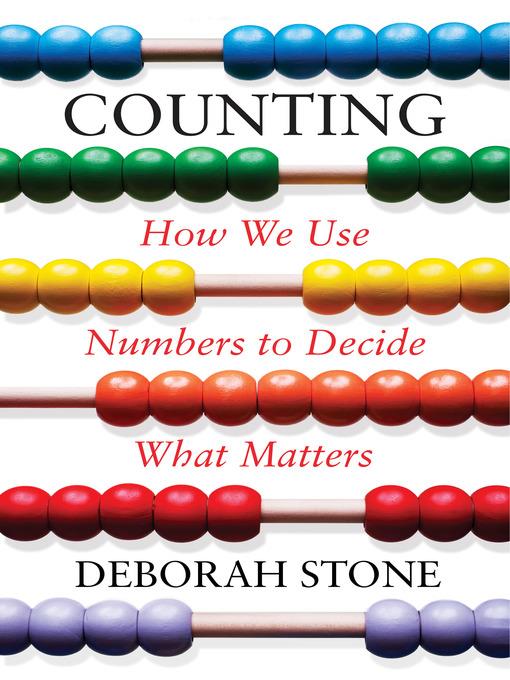
Counting
How We Use Numbers to Decide What Matters
کتاب های مرتبط
- اطلاعات
- نقد و بررسی
- دیدگاه کاربران
نقد و بررسی

July 27, 2020
The recourse to supposedly neutral, objective statistics warps social policy in subtle yet egregious ways, according to this incisive treatise. Political scientist Stone (Policy Paradox) examines a variety of controversial political issues in her investigation into how numbers are shaped by human perceptions and shape them in turn, including the Constitution’s infamous reckoning of slaves as three-fifths of a person; the Census Bureau’s present-day counting of racial categories (why, she wonders, is Barack Obama counted as “a black man with a white mother instead of a white man with a black father”?); and GDP estimates that count the paid labor of prison guards as an economic plus but not free child care by parents. She also describes how computerized parole algorithms estimate not the actual chances of recidivism but the racial assumptions of police and courts, and how educators game school-performance numbers by “artfully managing” which students take state-mandated standardized tests. Stone distills a wealth of thinking about statistics and their psychological and social foundations into lucid, engaging prose, illustrated with piquant graphics and cartoons, though her critique of cost-benefit analyses gives short shrift to their role in spotlighting unintended consequences of policy. Still, this is a stimulating layperson’s guide to the pseudo-mathematical rationalizations behind so much of what governments do.

Starred review from August 15, 2020
A delightful takedown of our unreasonable worship of numbers. In 1954, Darrell Huff's bestselling How To Lie With Statistics began a genre that continues to produce numerous books each year. Stone, a professor at MIT and Brandeis whose specialty is political science and social policy, casts an equally critical eye but delves far more deeply into the subject. To Stone, a number is not a fact but a tool, useful only if we know how it works. When the U.S. Census Bureau announces that Whites are becoming a minority, what's to argue with? Doesn't the census merely count? However, the Bureau defines White as a person who checks the "White" box on the form--and none of the 13 other boxes. Checking the "Hispanic" box or both the "Hispanic" and "White" boxes makes you a non-White. Children of mixed marriages are never White, ditto with anyone checking "White" and "Other." It's a mess. "Numbers don't speak for themselves but their creators....More often than not," writes the author, "numbers are part of somebody's argument." They can mean whatever their authors want them to mean, so all are "cooked"--not faked but assembled from various ingredients that vary according to circumstances. If you have any doubts, asking the numbers themselves won't help; you have to address the authors. As Stone lays out her examples of irrational faith in numbers, readers will squirm, but not with disbelief. Founding Father James Madison's meticulous, if creepy calculation demonstrating that a Black slave is worth precisely three-fifths of a White freeman will certainly put his statues in peril. Graded according to their death rates, the best hospitals perform badly because they deal with the sickest patients. Graded (and promoted or fired) on how well students score on a standardized test, teachers teach how to take the test. Enthralling evidence that there is less to numbers than meets the eye.
COPYRIGHT(2020) Kirkus Reviews, ALL RIGHTS RESERVED.

























دیدگاه کاربران